
Apostle Paul Life, Teaching & Theology
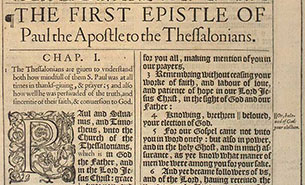
Paul’s Epistles to Thessalonians: "Jesus is the Messiah"
The First Letter of St. Paul to the Thessalonians is considered one of Paul's earliest epistles, likely the first written letter of the New Testament of the Bible. In order of appearance, 1 Thessalonians is preceded by Paul's Letter to the Colossians and followed by his Second Letter to the Thessalonians. From the letter itself (3:1-6), and the record of Paul's travels in Acts (Ac 17:10-18:11), it seems that Paul wrote this letter soon after arriving in Corinth on his second missionary journey, while the exact date of both the Thessalonian Letters has been accurate and is considered to be and was composed around 52 - 53 AD. To be précised, the writing of 2 Thessalonians was not long after 1 Thessalonians because it did not achieve all that Paul had hoped it would, while he had become … Read more >
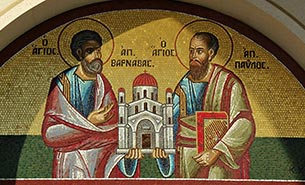
The Companions of Paul & Biblical Persons Related to Paul
The world of the Book of Acts is full of persons who are related with Paul. For some of them we have only one reference. Some others are playing key role in Paul's journeys and are shown to have important duties after Paul’s teaching and affection. For this reason we will separate these persons to two categories: Paul's companions during his missionary journeys and persons that simply mentioned in the Acts.… Read more >
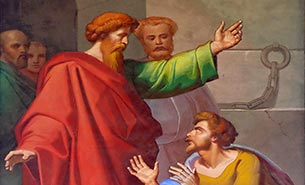
Paul & the Jailer in Phillipi: An Earthquake demolishes a meaningless Life, shakes the whole existence & creates the foundations of the Christian Faith
Almost before they realized what was happening, the two apostles found themselves arraigned before the bar of Roman justice. What was the logic of their imprisonment? The plain fact was that Paul released a python girl from the evil spirit. It was no crime under Roman law to exorcise a demon or to heal a mentally sick person. They had, in fact, done nothing of which they could justly be accused before the court. It was almost as if the evil spirit, having been cast out of the slave girl, had entered into her owners and turned them into furious, raving beasts. The complainants, however, felt that they would have the sympathy… Read more >
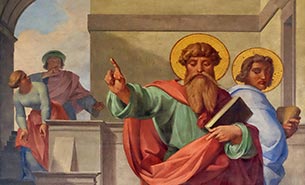
Paul & the Slave Girl in Philippi: A story of Liberation & the revolutionary Message of Christianity
One of the most interesting and controversial facts in Saint Paul’s Secondary Mission, took place at Philippi in Macedonia where Paul exorcised a demon-possessed slave girl. The story follows after Paul and Silas work on evangelizing and the first converts to Christianity. The second woman in Paul's experience at Philippi was as different from the first as day from night. Lydia, Paul's first recorded European convert, was an independent businesswoman of honorable character and godly piety. The second woman was an unfortunate, demon-possessed slave girl exploited by her owners for their own material profit. Also, her name is unknown. The girl was most likely… Read more >
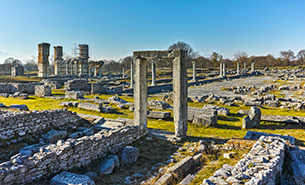
Philippi: A loyal church, A long tradition
The most instructive source with regard to the church and the development of Christianity in Philippi in the second century is Polycarpus’ epistle to the Philippians around AD 160. Polycarpus was a bishop in Smyrna in the first decades of the second century. He was also a disciple of John’s, thus became the meddler for the Johannean tradition to flourish at Philippi. In one inscription, possibly from a cemetery, a certain Simon from Smyrna is mentioned (Pilhofer 2000:381-382). Elsewhere in his epistle, Polycarpus reminded the Philippians of some people from their midst who had died because of their belief (Pol, Phlp1:1; 9:1). These words show that the group of believers constituted a clearly identifiable community and that they had in some way or other autonomy in regard to the authorities. In any case, it is clear that the Christian community in Philippi… Read more >
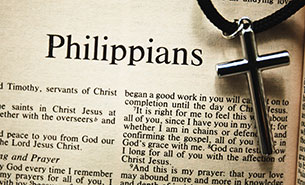
Apostle Paul to Philippi: Sowing the Seeds of Christianity
St. Paul’s Second Missionary Journey was meant to be the uprising of the expansion of the Christian Faith across Europe, starting by the establishment of the first Christian Community in Macedonian Philippi. As one writer has commented, “Out of Macedonia, Alexander the Great once went to conquer the Eastern world but later from Macedonia the power of the gospel went to conquer the Western world of Paul’s day” (Swift 1984:250). But, why, specifically, in Macedonia? The story begins with Paul and his companions traveled throughout the region of Phrygia and Galatia, having been kept by the Holy Spirit from preaching the word in the province of Asia. 7 When they came to the border of Mysia, they tried to enter Bithynia, but the Spirit… Read more >
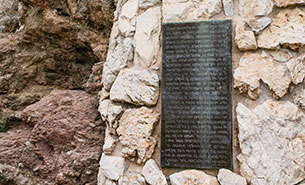
Apostle Paul & The Greek Society
In the mid-1st century AD with the apostle Paul's preaching of Christ begins a major change in the Greco-Roman world. Particularly annoyed by the action of Apostle Paul and his associates, the Jews of Thessaloniki stir up the mob, creating riots in the city's society, and then calling out to the city officials: “…. have caused trouble all over the world have now come here…They are all defying Caesar’s decrees, saying that there is another king, one called Jesus” (Acts 17, 6). Without knowing it, they proclaim in this phrase the ongoing and imminent change in the world that leads to its fundamental transformation. This radical transformation promises the Apostle Paul in what he says in his preaching of Christ's redemption of man and of his responsibility to the fellow human in society. In a very brief, almost concise way, we can summarize the effect of Paul's message on the society of his time… Read more >
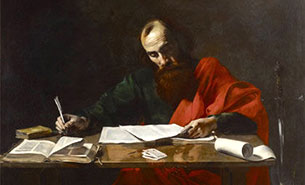
Apostolic Succession & Ordination According to The Apostle Paul: Charisma & Priesthood (Part 1 of 3)
The concept of apostolic succession is indissolubly linked to the self-evident prospect of the succession of the apostles after their death continuing the apostolic work, while ordination was the only way for the apostles to concede their powers to their proven associates to secure not only the wider distribution of responsibilities in place, but the uninterrupted continuity of the apostolic work of the episcopate in time. However, while the development of the apostolic work in place was covered from the beginning by ordination by the apostles of the local priesthood (bishops and deacons or elders), as evidenced by the apostolic testimonies, the continuity of the apostolic function of the episcopate in time, that is, to deal with the question of the succession of apostles after their death, was not an immediate or pressing need during the apostolic period… Read more >


